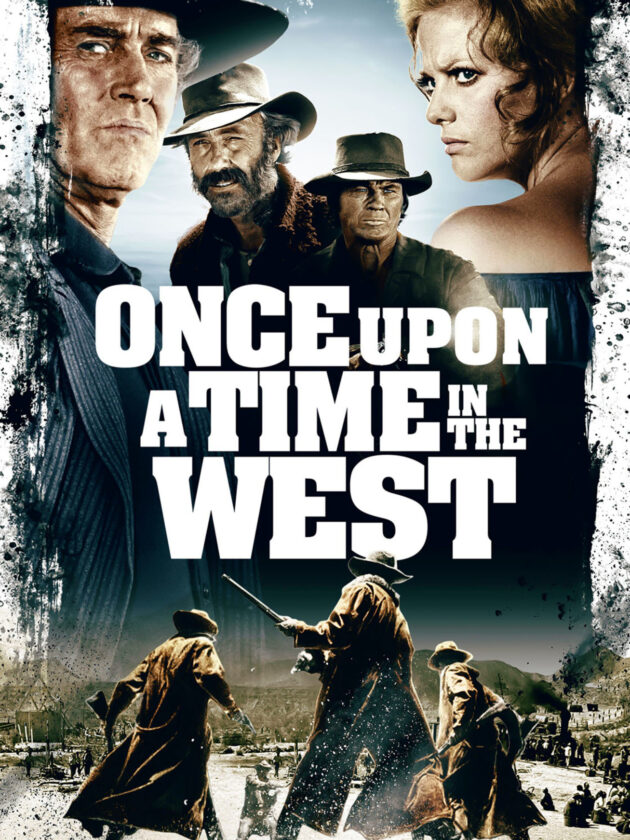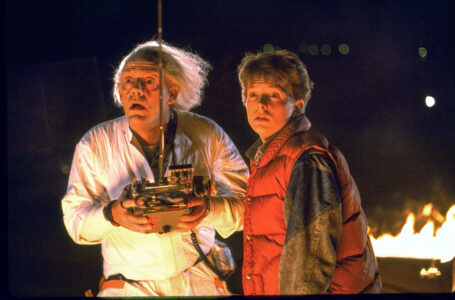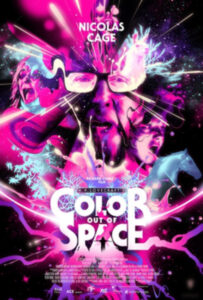‘Once Upon a Time in the West’ is a Leone masterpiece

PHOTO PROVIDED
I write Throwbacks a bit less often than my coworkers, but if you remember from some of my previous articles, I was raised young on a steady diet of my parents’ favorites: 1960s science fiction, sitcoms, game shows — and westerns.
As a result, sometimes, when I’m feeling nostalgic, I get peculiar, anachronistic cravings. Just so this past weekend, when I had the strange urge for a nice slab of spaghetti western.
I didn’t want to watch something I had already seen, though. I briefly debated trying to track down one of the pseudo-prequels to “The Good, the Bad, and the Ugly,” but while researching where to find those, I kept stumbling across people online raving about another Sergio Leone movie, disconnected from the Clint Eastwood trilogy: “Once Upon a Time in the West.”
“Once Upon…” came out in 1968, after the success of “The Good…”
By this point, Sergio Leone — mastercrafter of the spaghetti western — was at the peak of his craft and was highly sought after. While many of his previous movies were considered low budget, for “Once Upon…” he had plenty of resources and the dramatically increased scale of the film really showcases that.
Starring Charles Bronson as the unnamed gunslinger typical of the genre, the movie also cast big-name actor Henry Fonda as the movie’s primary antagonist, Frank, and he did an absolutely fantastic job with the role.
Most of the rest of the cast are names that I, at least, don’t recognize — although they may have been notable in their day.
The film made an unusual — and welcome — decision for its day to have a relatively strong woman as a lead character: Claudia Cardinale’s Jill McBain. While she’s not passing any Bechdel tests, the film uses her character to showcase how difficult life in the Old West was for many women, and she is shown handling her lot with strength and resiliency, which is about the best you can ask for a period piece made during the 1960s.
Amidst all the scenery chewing and operatic motivation explorations that Leone’s westerns are known for, though, dances my favorite character in the movie: the outlaw Cheyenne, played magnificently by Jason Robards.
One of the greatest strengths of “Once Upon…” is the depth of the characters. Most of the cast enjoys complex backstories and motivations. The hero, known only as Harmonica, does some markedly un-hero-like things several times during the movie — in particular, a very uncomfortable scene with Jill where nothing actually happens, but… yikes. Likewise, you expect Cheyenne to be villainous, but he is instead shown to have the best interests of the protagonists at heart, sometimes in the most delightfully chaotic way.
There are several plots woven together into this movie, but the central one revolves around the construction of a railroad line by wealthy and morally dubious businessman Mr. Morton, who is sick with tuberculosis and wishes to complete a coast-to-coast railroad line before he dies of his illness. To complete this, he is willing to cross many lines — which creates the main conflict of the film between Morton and his agent, Frank, versus Jill, Harmonica and Cheyenne… although both Harmonica and Cheyenne have their own reasons for helping Jill.
There is a particularly wonderful scene where Frank is aspiring to Morton’s throne, only to be rebuffed by Morton, saying that Frank will never be like Morton because he doesn’t understand the power of money.
Many spaghetti westerns focus on the mythos of the lone gunman, mysterious, cloak flapping in the wind, morally questionable but ultimately on the side of the angels — and their lengthy showdowns with equally mysterious gunslinger nemeses. In the genre’s fixations on the gunslinger duel, though, most westerns that I have seen have left the exploitation and development of the West by the wayside, or included it as a footnote. This is the first one that I’ve seen where it was a central theme, which I appreciated. Note that I am quite sure there are others — I just haven’t seen them, and considering I usually watch one western a year, it might take me a while to find one!
I would be remiss if I wrote this throwback without at least a mention of Ennio Morricone’s soundtrack, which, while less iconic than some of his other film scores, was still superb.
While the film is an incredible spaghetti western, it is still a spaghetti western, and as such should be avoided if you have a short attention span. I would argue that the film is a bit faster paced than “The Good…,” but the pacing is still…generous. With a bulky run time of 166 minutes, or just under three hours, this movie requires a dedicated block of time and demands your attention.
I also want to mention that, for me, the last third of the movie or so slipped a little. I’m not sure if it was an editing problem — this movie, like many of Leone’s films, was initially butchered by the studio on the cutting room floor to make the runtime “acceptable” — or if Leone rushed the ending, or what happened. Several important scenes happen off-screen and I found myself mildly confused once or twice in that final third — especially by Cheyenne’s fate, which seemed to come out of absolutely nowhere compared to how lovingly attentive the movie’s plot was to every event in the first two-thirds of the film.
Still, those slight dings do little to mar the enjoyment of the film. Critics have agreed, with the film being selected in 2009 for preservation in the US National Film Registry by the Library of Congress. It has also appeared on Time’s list of the 100 greatest films of the 20th century (not ranked, just a list) and Empire’s 500 greatest movies list (#14, and the highest-ranking western). On Rotten Tomatoes, “Once Upon…” earned a 96% fresh across 67 critics, and a 94% fresh audience score across over 50,000 viewers.
The film is available in many places, including Amazon Prime, Paramount+, MGM+, Youtube and more, and is rated PG-13, although I would note that I am a wuss and found the movie pretty mild for its rating, at least by today’s standards.
— — — —
Arianna McKee is Design Editor at The Express.




